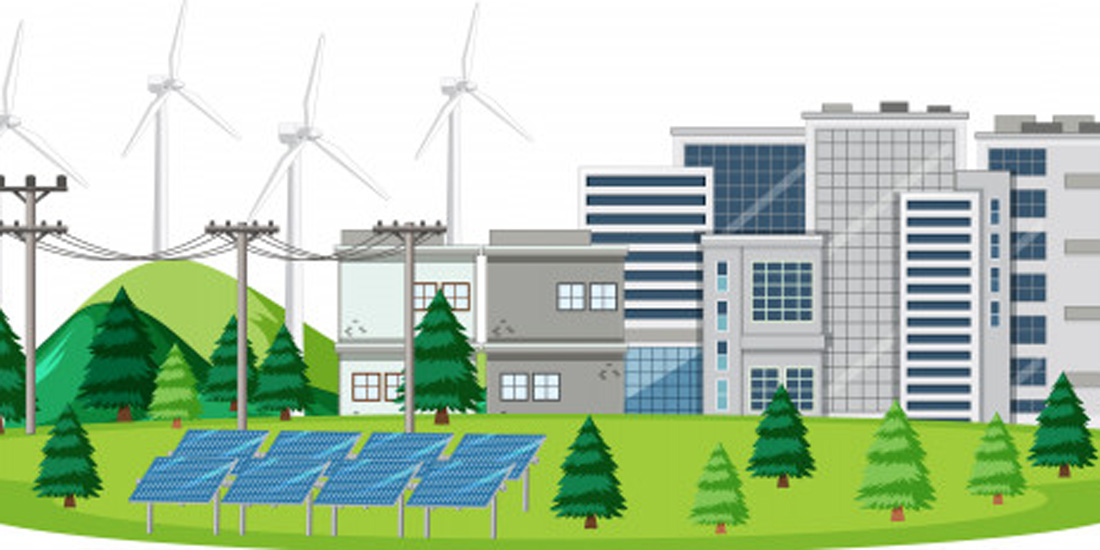Monitoring the amount of energy you’re using has never been more important for businesses than now.
Cost-savings are high on everyone’s agenda as the country begins to get back to work while deadlines to cut greenhouse gas emissions to net zero will continue to be a priority over the coming years.
A lot to tackle – but where to begin?
An awareness of energy usage and its consumption across all areas of your operation is perhaps an ideal starting point. From here, expert analysis of your energy data can provide an essential and effective energy management programme for the business.
Colin Jones, manager director at Inteb, explains how important it is to analyse your energy consumption data in real-time.
When looking to make savings on your business’ energy expenditure, monitoring usage puts you back in control by identifying where you are using the most.
No matter the sector in which you operate, real-time data provides vital information and an understanding of the processes to go through so your energy management is easy to follow and quickly adapted to the needs of the business. Nor do you need to be a specialist in energy management. Real-time data in a simple and effective format can enable anyone to quickly analyse what’s happening in a building to allow you take effective steps to conserve energy.
Some essentials to bear in mind when including real-time monitoring and control as part of your energy management programme are:
Data explorer – to analyse your energy consumption quickly so that you know when, how and where energy is spent and find out which devices consume more energy.
Alarms – to define when and how you want to be alerted for excessive consumptions which occur outside scheduled time and defined objectives.
Reporting – to customise regular reports as well as specific reports for the different areas of the business so you can closely monitor energy consumption.
Savings – to identify savings targets and permanently monitor their evolution, comparing them with the implemented measures and perform a return on investment forecast.
Control – for sustainable improvements and savings, your platform needs to interface with site-based equipment and electrical circuits.
Remote control devices – to be installed as part of overall energy management in which scheduled working periods and parameters can be set and controlled for maximum savings.
Events – to identify the key moments of your business’ energy consumption and set targets as appropriate.
Climate change, government environmental targets, limited resources and developments in renewable energy all put major demands on businesses to be more carbon neutral. A vital step forward to meet all these challenges is to monitor your own energy consumption with the end result of saving energy and saving money.
Some interesting and thought-provoking comments from RenewableUK, the country’s renewable energy trade association, as we begin to gradually ease out of the pandemic lockdown.
The organisation has been putting the spotlight on a call by the Committee on Climate Change for the government to boost economic recovery by supporting the growth of low-carbon infrastructure.
Although a major priority lies in staying safe and supporting the response to Covid-19, RenewableUK says the climate emergency has not gone away while all eyes have been on the pandemic crisis – if anything, it has underlined the need to make sure our economy is sustainable and resilient in the long-term.

According to RenewableUK’s public affairs manager Nathan Bennett, now is the time to look at how UK businesses can contribute to meeting the net zero carbon emissions target by 2050. He said:
Throughout the UK, analysts, economists and environmentalists are discussing whether the renewable energy industry could – and maybe should – play an even greater role by helping to power a green economic recovery.
Companies harnessing energy from the wind, sun and sea, they say, have the ability to stimulate the economy by attracting billions in investment and creating thousands of green jobs while delivering Britain’s climate ambitions.
Other voices all over the world are also connecting economic recovery with a push for an energy transition to a low-carbon infrastructure.
It could be said that Covid-19, in many respects, has created some environmental benefits such as lower carbon emissions and cleaner air.
Maybe the time is right to grasp the chance of a greener world.

World Environment Day last week, with its theme of Time for Nature, gave us an opportunity to think long and hard about environmental issues worldwide, from global warming and marine pollution to the accelerating loss of species.
Focusing on the variance of things that make up life on Earth, the event highlighted how healthy eco-systems that are rich with biodiversity are fundamental to human existence by delivering vital services – food, help to regulate our climate, filter our air and water to mitigate impacts of natural disasters and help protect against the spread of disease.
The really good news from World Environment Day was that sustaining a healthy planet can be achieved by educating ourselves on the effects of climate change and making some vital lifestyle changes.
Get the conversation started – call us now on 0151 601 3476